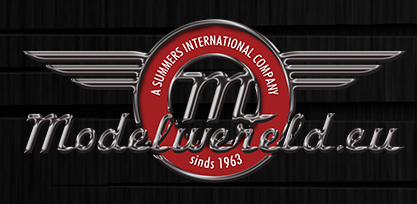The German Army in WW2 relied on half tracks such as the Famo 18 ton Zugkraftwagen to recover damaged or broken down vehicles. The Famo fulfilled it’s role very well, however soft ground was a problem and they could not be produced fast enough to satisfy demand. In addition German tanks were becoming heavier and several Famos, each with a towing capacity of 15 tons, were required to recover one Tiger or Panther.
The first recorded production Bergepanzers were converted from the Panther Ausf. D and debuted at Kursk in July 1943. The Bergepanthers continued to evolve through the Ausf. A and Ausf. G.
As a result of reports in Autumn 1943 on the high numbers of tanks lost due to the shortage of Famos it was decided to convert other Panzer chassis to recovery vehicles. In March 1944 rebuilt Panzer III chassis were converted to Bergepanzer III and starting in October 1944 rebuilt Panzer IV chassis were converted to Bergepanzer IV. Hetzer Chassis were also converted starting in May 1944.
The Bergepanzer IV was a simple conversion of hulls which had been returned for major overhaul. The turret was removed and the turret ring opening was covered with wooden planks held by steel frames, with a simple hatch on the right side. Sockets (Pilze) were welded to the superstructure roof to mount a 2 ton Kran, which was a hand operated tripod, jib crane. Brackets were attached to carry a wooden unditching beam and to stow the Kran together with tow bars. A vertical coupling was attached to the rear to tow other vehicles using the tow bars. Other recovery equipment was stowed inside the vehicle on wooden planks above the fuel tanks
A total of 21 or 36 (dependant on which reference you use) Bergepanzer IV were completed between October 1944 and March 1945. It was planned to install a winch inside the Bergepanzer IV. However production of the AK5-80 transmission, which was required to create a power take off, did not get into series production before the end of the war. Instead the old practice of breaking the tracks and using the front sprocket as a capstan winch continued.
Twee uitvoeringen mogelijk;
- Unidentified Unit, Germany 1945.
- Unidentified Unit, Germany 1945.
Aantal onderdelen; 780.
Features:
- Derrick crane can be portrayed in stowed position
- Crane can alternatively be modeled in deployed position
- Newly tooled front pulley system
- Brand new rear pulley system
- Newly tooled wood stand
- Driver’s and radio operator’s housing w/splash guard
- Hatches w/internal detail
- Movable metal chain included
- Realistic pulley system detail
- One piece upper hull w/accurate engine-deck design
- Spare-wheel rack w/spare wheels on upper hull side
- Spare-track bracket on glacis plate w/photo-etched and plastic option
- Side fenders w/pattern detail on both top and bottom surfaces
- Injection-molded fenders made to thinnest possible dimensions
- New OVM arrangement on fenders w/clasps
- Spare-track bracket on lower hull front
- Air-intake covers have option of injection or photo-etched parts
- Realistic double-layered air intake
- Lower hull made by 2-directional slide mold: bolts and rivets delicately represented on hull bottom
- Detailed towing-eye brackets w/separate parts
- Accurately detailed idler adjuster mountings
- Great detail on newly tooled hull rear
- Road wheels and suspension w/multiple components exhibit crisp detail
- Final-drive housing w/details on both sides
- Separate armored cover for final-drive housing
- Sprocket wheels w/breathtaking detail and multiple delicate parts
- Two options for idler wheels
- Photo-etched parts for idlers to accurately represent undercut details
- Extendable jack w/separate parts
- Rear antenna included
- Fuel filler flap has open/closed option
- 40cm Magic Tracks
- Complete MG w/workable ball mount


